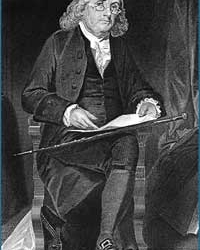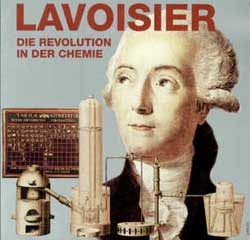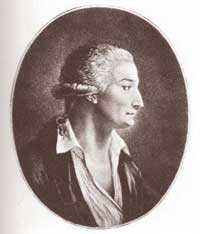Albert Einstein was slow to speak, often did not wear socks, and was adored by many women—these are lesser-known facts about the life of one of the greatest scientists in the world.
Top 13 Facts About Albert Einstein
- 1. Larger than Average Head
- 2. Slow to Speak
- 3. Einstein Did Not Fail Math
- 4. The Mystery of Einstein’s Daughter
- 5. Einstein Set Rules for His Wife
- 6. Einstein Married His Cousin
- 7. Einstein Was Adored by Women
- 8. Einstein Did Not Wear Socks
- 9. Einstein Opposed Racism
- 10. Einstein May Have Chosen His Death
- 11. Missed Nobel Prize for General Relativity
- 12. Was Once Offered the Presidency
- 13. Many Body Parts Were Stolen
>>> Why Did Albert Einstein Become a Genius?
1. Larger than Average Head
Einstein was born on March 14, 1879, in Germany. At birth, the back of Einstein’s head was larger than average, causing his family to worry that he had a serious problem. However, a few weeks later, his head shape returned to normal.
2. Slow to Speak

The oldest known photo of Einstein at age 3. (Photo: Wikimedia Commons)
Some people believe Einstein began to speak at the age of 4. His parents sought help from a doctor to address his speech delay. Economist Thomas Sowell even coined the term “Einstein Syndrome” to describe individuals who are intelligent or exceptionally talented but were slow to speak as children.
3. Einstein Did Not Fail Math
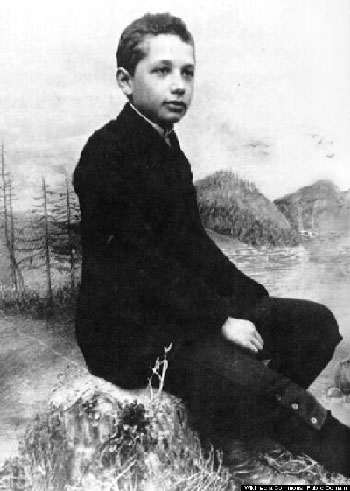
Einstein at age 14. (Photo: Wikimedia Commons)
During his school years, Einstein was not considered a good student. His poor academic performance even led to rumors that he had failed math. However, in reality, Einstein had become familiar with and excelled in physics at a university level by the age of 11 and was an accomplished violinist, scoring highly in Latin and Greek. By the age of 15, Einstein was proficient in differential and integral calculus.
4. The Mystery of Einstein’s Daughter
Before Einstein married his first wife, Mileva Marić, Mileva secretly gave birth to their daughter at her parents’ home in Serbia. However, their daughter Lieserl has an unclear identity. Essentially, all records related to Lieserl disappeared after her birth. To this day, researchers have not found evidence that Einstein ever saw his daughter.
5. Einstein Set Rules for His Wife
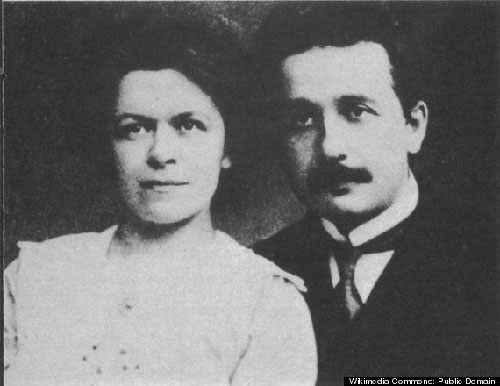
Einstein and his first wife Mileva Marić. (Photo: Wikimedia Commons)
After marrying, Einstein established a set of rules for his wife Mileva to follow, including requirements such as preparing three meals a day, stopping speaking when he requested, and not expecting intimate affection from him.
6. Einstein Married His Cousin
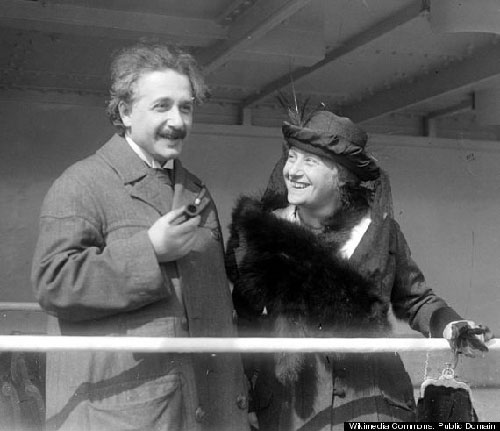
Einstein and his second wife, Elsa Einstein. (Photo: Wikimedia Commons)
Einstein had a very close relationship with his cousin Elsa Einstein, who later became his second wife in 1919. There are even reports suggesting that Einstein and Elsa’s relationship blossomed while he was still living with his first wife.
7. Einstein Was Adored by Women
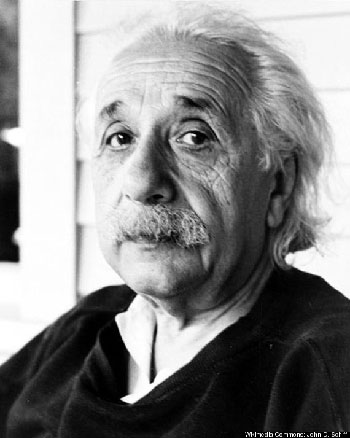
Einstein in the 1950s. (Photo: Wikimedia Commons)
In letters to Elsa, Einstein openly admitted to having several extramarital affairs. According to the Telegraph, he once wrote that women always expressed unwanted affections towards him.
8. Einstein Did Not Wear Socks
In another letter to Elsa, Einstein wrote that he “went out without wearing socks” at the University of Oxford. The genius scientist is often remembered for his disheveled appearance, although the attention was more focused on his hair than his feet.
9. Einstein Opposed Racism
Einstein was a member of the National Association for the Advancement of Colored People (NAACP) while living and working in Princeton, New Jersey, USA. However, even before moving to the United States in 1933, Einstein had exchanged letters with civil rights activist and scholar W.E.B. Du Bois, one of the founders of the NAACP. In a speech in 1946 at Lincoln University in Pennsylvania, Einstein referred to racism as “a disease.”
10. Einstein May Have Chosen His Death
Einstein passed away on April 18, 1955, at the age of 76 due to a ruptured blood vessel. However, according to information from the website of the Natural History Museum, doctors suggested surgery to prolong his life, but he refused, stating: “It is pointless to prolong life artificially.”
11. Missed Nobel Prize for General Relativity
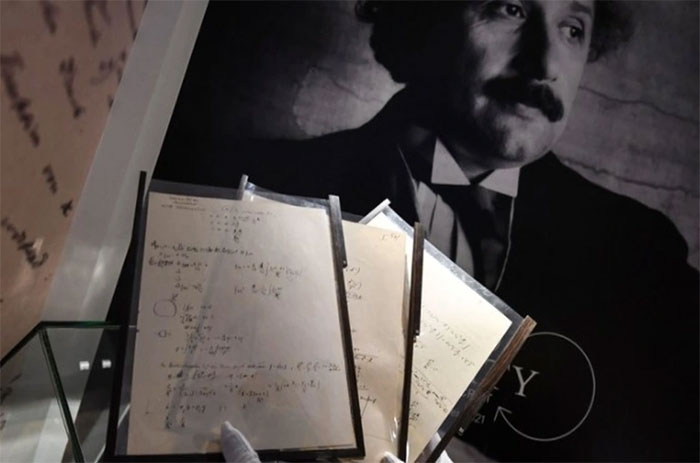
Handwritten manuscript on Einstein’s Theory of Relativity presented one day before being auctioned at Christie’s in Paris (Photo: AFP/Yonhap).
Published in 1916, Einstein’s general theory of relativity completed the special theory of relativity by incorporating gravity and acceleration into the equations through the concept of warped spacetime. His genius was evident in how he transformed earlier research from scientists like Henri Poincaré and Hendrik Lorentz into a unified theory.
However, Einstein was not awarded the Nobel Prize for this achievement. After years of consulting archives, science historian Robert Marc Friedman uncovered a surprising truth: the reason for this may have stemmed from some individuals harboring biases against Einstein to undermine his reputation. Specifically, some leading German scientists at the time labeled Einstein’s work as baseless fraud.
Nonetheless, Einstein’s fame continued to grow, and his works brought breakthroughs to humanity. Ultimately, in 1922, Einstein was awarded the Nobel Prize in Physics, but not for the Theory of Relativity, his greatest scientific achievement. This event has become one of the most controversial mysteries in Nobel history.
12. Was Once Offered the Presidency
Einstein is primarily remembered as a physicist, but his political views at the time were also as famous as his scientific achievements.
Einstein was a pacifist. He used his fame and influence to advocate for the ideals he pursued, denouncing Fascism in Germany, advocating for the state of Israel, and criticizing racism in the United States.
In 1952, Israel’s first president, Chaim Weizmann, proclaimed Einstein as “the greatest living Jew” and hoped he could become his successor. However, Einstein, then 73 years old and not even an Israeli citizen, believed that his age, lack of experience, and inadequate leadership skills made him an unsuitable choice.
13. Many Body Parts Stolen
According to Einstein’s wishes, upon his death, his body was to be cremated, and the ashes scattered in a secret location to prevent them from being seized by worshippers.
However, before anyone had the chance to carry out this intention, Thomas Harvey—a coroner—quickly separated Albert Einstein’s brain from his body and took it home without the permission of his family.
To accomplish this, Harvey performed a secret autopsy immediately after Einstein passed away. He divided Einstein’s brain into 240 parts, preserved in two glass jars filled with a solution of celloidin (a form of cellulose but in a harder state) and stored them in the basement of his own home.
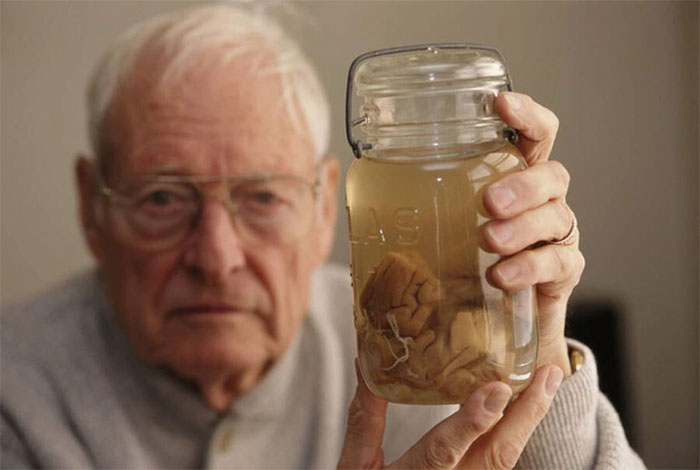
Thomas Harvey and a part of Einstein’s brain in 1994.
Some documents suggest that Harvey not only stole Albert Einstein’s brain but also took his eyes, which he later returned to Einstein’s ophthalmologist. Harvey’s grotesque actions were so unacceptable that even his wife could not tolerate them, leading to an inevitable breakdown of their marriage.
Despite the undeniable inhumanity and opportunism of his actions, Thomas Harvey is still recognized in the scientific community as one of the most veteran pathologists of his time. The process of separating and preserving Einstein’s brain was executed perfectly, making it a valuable subject for scientific research after the renowned physicist’s death.








































